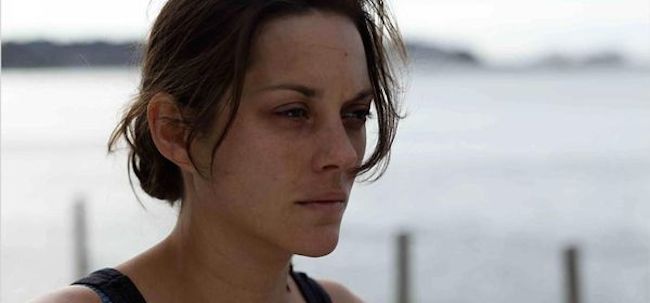By Jake Howell jake.howell@utoronto.ca
Countdown To Cannes: Jean-Pierre And Luc Dardenne
 The eleventh in a series of snapshots outlining the nineteen directors in the 67th Palme d’Or Competition.
The eleventh in a series of snapshots outlining the nineteen directors in the 67th Palme d’Or Competition.
Background: Belgian; born Liège, Belgium 1951 (Jean-Pierre) and 1954 (Luc).
 Known for / style: La Promesse (1996), Rosetta (1999), L’enfant (2005), The Kid with a Bike (2011); slice-of-life films made with naturalist (handheld) and social realist approaches to filmmaking; narratives that focus on the downtrodden; minimal use of score; explorations of family (sometimes dysfunctional) dynamics; working with actors Jérémie Renier, Fabrizio Rongione, and Olivier Gourmet; working with cinematographer Alain Marcoen; working with non-actors and lesser-known players.
Known for / style: La Promesse (1996), Rosetta (1999), L’enfant (2005), The Kid with a Bike (2011); slice-of-life films made with naturalist (handheld) and social realist approaches to filmmaking; narratives that focus on the downtrodden; minimal use of score; explorations of family (sometimes dysfunctional) dynamics; working with actors Jérémie Renier, Fabrizio Rongione, and Olivier Gourmet; working with cinematographer Alain Marcoen; working with non-actors and lesser-known players.
Notable accolades: The Dardenne brothers are two of only eight filmmakers who have won the Palme d’Or twice (first for Rosetta, again for L’enfant). Other Cannes wins include the Grand Prix (The Kid with a Bike) Best Screenplay (Lorna’s Silence, 2008), and two Ecumenical Jury prizes (Le fils, 2002 and Rosetta). Their films routinely pick up awards at European film festivals, and they’ve won three Lumiere Awards for Best French Film (Le fils, L’enfant, and Lorna’s Silence).
Previous Cannes appearances: The frères first appeared at Cannes in 1987, debuting Falsch in a parallel section. They later followed up with La Promesse in 1996, also playing parallel to the Competition. Since then, they’ve regularly been slated as veterans of the big leagues, including Rosetta, Le fils, L’enfant, Lorna’s Silence, and The Kid with a Bike (2014 will mark their sixth slot in Competition). They also participated in 2007’s anthology film Chacun son Cinéma.
Film they’re bringing to Cannes: Deux jours, une nuit (Two Days, One Night), a French-language film starring Marion Cotillard and Fabrizio Rongione (Rongione being a regular Dardenne player, Cotillard a newcomer). From IMDb: “The film follows Sandra, a young woman assisted by her husband, who has only one weekend to convince her colleagues to give up their bonuses so that she can keep her job.” Described as a “Belgian Western” by Cannes chief Thierry Frémaux, the film also features Catherine Salée, last seen in 2013 Palme winner Blue is the Warmest Color.
Could it win the Palme? As was the case in 2012 with Michael Haneke, the question is not “if” the Dardennes will win but “what” they will win. When Rosetta won the Palme in 1999, it was a controversial move by David Cronenberg’s jury; the Dardennes second Palme in 2005 was a vindication for everyone who believed Rosetta was a worthy winner. In 2014 their auteur status is no longer questioned, with their latest Cannes debut riding off with the Grand Prix. While no one in history has three Golden Palms to their name, you can be sure Two Days, One Night is not walking away empty-handed, from acting awards (Marion Cotillard, darling of French-language cinema? Come on) to any of the Festival’s major prizes.
Why you should care: Fabrizio Rongione’s roles in the Dardenne filmography have primarily been minor, so it should prove intriguing to see him play a lead here in Two Days, One Night. Of course, the casting of Marion Cotillard brings a certain must-see quality to the Dardennes’ work (which has typically avoided star power), and if the brothers do inevitably take home something big, well…
Follow Jake Howell on Twitter: @Jake_Howell
Previous Entries:
Tommy Lee Jones
Atom Egoyan
Bennett Miller
Xavier Dolan
David Cronenberg
Nuri Bilge Ceylan
Naomi Kawase
Ken Loach
Michel Hazanavicius
Jean-Luc Godard















